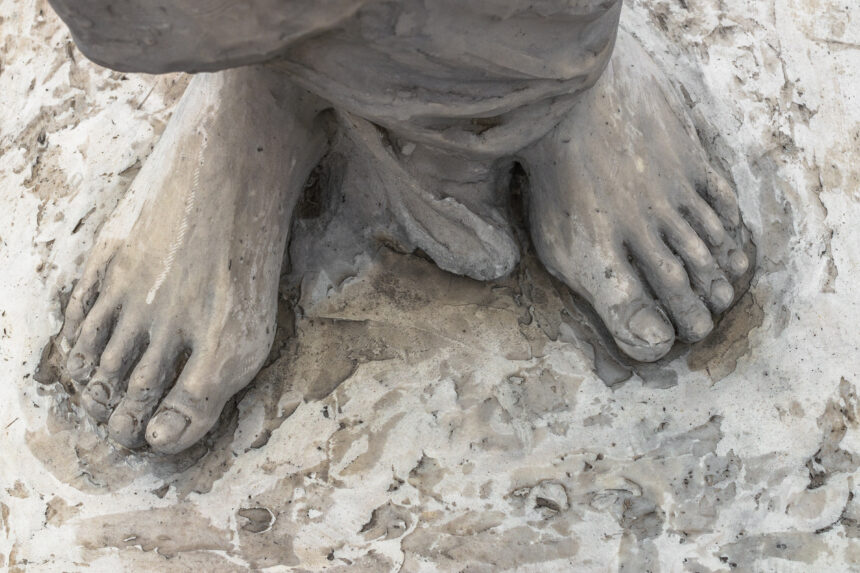In a touching moment of revelation, John 1:14 presents the profound mystery of the divine Logos, “And the Word was made flesh, and dwelt among us…full of grace and truth.” This encapsulates the miraculous concept of divine incarnation, revealing its profound implications.
The “Word” mentioned in John 1:14 (also referenced in John 1:1; 1 John 1:1-5; Rev. 19:13) is the Son of God, Jesus Christ, who assumed a human form. The concept of incarnation presupposes the preexistence of the Son of God, as echoed by Prophet Micah’s words, “Whose going forth have been of old, from everlasting” (Mi. 5:2), and Jesus’ own proclamation, “Before Abraham was, I am” (John 8:58).
The Word is the divine agent of creation, responsible for everything in heaven and earth (John 1:1-3, Col. 1:14-17, Eph. 3:9, Heb. 1:1-3). In becoming flesh, the Word embodies humanity as authentic as any child born into this world (Luke 2:7; Gal. 4:4; Isa. 9:6). This humanity is marked by natural laws, including growth, development, nourishment, and rest (Luke 2:52, Matt. 21:18; 25:35; Matt. 27:48; John 4:6).
This incarnation serves a tripartite purpose. First, to qualify as a priest, the Son of God had to share the nature of Abraham’s seed (Heb. 2:14-16). Second, a physical body was necessary for the ultimate sacrifice for sin and the shedding of His blood (Isa. 53:1-12, 1 Pet. 1:18,19). Finally, the incarnation was crucial for Christ to confront and defeat Satan, affirming God’s holy law and love through flawless obedience (Ex. 20:3-17; Ps. 40:6-8; Isa 42:19, 20; John 12:49). By withstanding all forms of temptation, Christ marked the definitive defeat of Satan (1 Cor. 15:57), thus restoring what was lost by our first parents (Mi. 4:8; Rom. 5:12-19).
The phrase, “the Word was made flesh and dwelt among us,” echoes God’s desire to live among His people, initially communicated to Moses regarding the construction of the earthly sanctuary (Ex. 25:8; 29:46). This promise extends to a future renewal of the earth, where God will once again live among humans (Rev. 21:3). The incarnation was necessary for the Son of God to experience humanity first-hand.
Throughout His time on earth, divinity occasionally broke through the veil of Christ’s humanity, demonstrating His divine nature (John 2:11; Matt. 14:25-32). This manifestation was acknowledged by the angels and accepted by humanity (1 Tim. 3:16). Various individuals like Nathanael (John 1:47,48), Peter (Mark 5:1-19; Matt. 14:28-33), Thomas (John 20:28), and wedding guests (John 2:1-11) personally witnessed divine attributes through Jesus’ life.
The Son of God did more than demonstrate divinity in becoming human. He made way for humanity to re-enter the family of sinless beings (Eph. 3:15). This reaffirms the transformative significance of the incarnation, marking the restoration of our heavenly kinship.
In conclusion, the incarnation, as represented in the phrase “The Word made flesh,” is a cornerstone of the Christian faith, a theological wonder that bridges the divine and the human. It portrays an Infinite God willing to limit Himself within the confines of the human form to reconcile humanity with divinity. This is not just a lofty theological doctrine; it bears tangible implications on Christ, who personally experienced the spectrum of human joys, sorrows, and trials.
Beyond its impact on Christ, the incarnation continues to be relevant for all of humanity. In becoming one of us, Christ demonstrates God’s accessibility and empathy with our lived experiences, comforting us with the knowledge that we are not alone in our struggles. His ultimate sacrifice provided us a pathway to overcome sin and attain eternal life.
Therefore, the “Word made flesh” serves as a beacon of hope, a testament to the divine love that surpasses our understanding, and a symbol of God’s unflinching commitment to humanity’s redemption. It invites us all to look beyond our human limitations, to perceive the glory of a God who isn’t remote and unapproachable but one who has shared in our human journey and opened a way for us to partake in His divine heritage. The incarnation, thus, is not merely a past event but an ongoing reality that fuels our faith, shapes our existence, and assures our hope in the divine promise of eternal life.


Leave a Reply